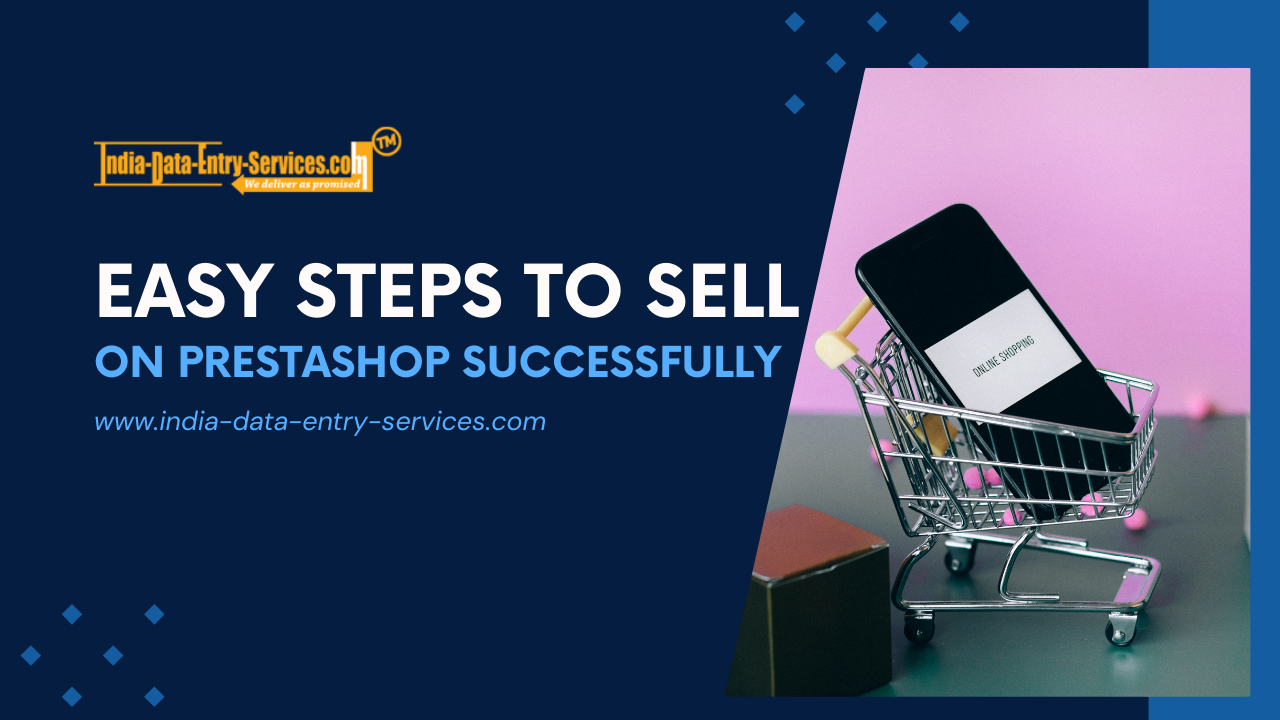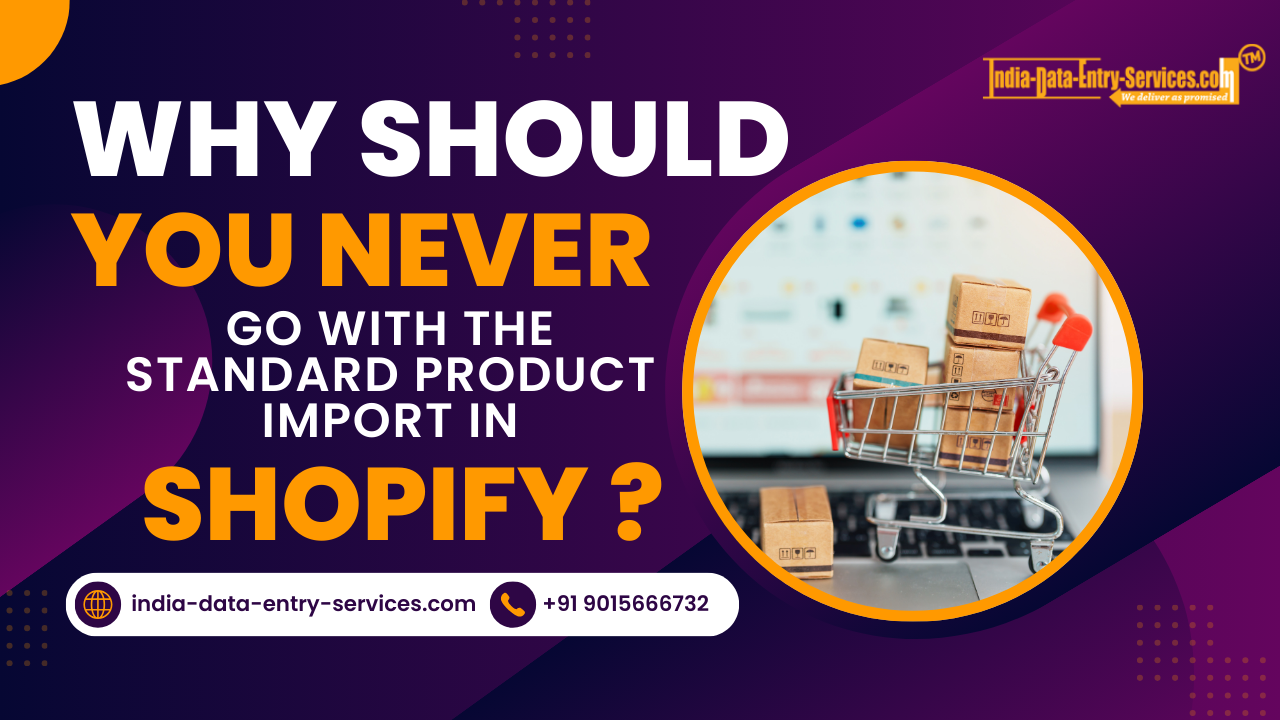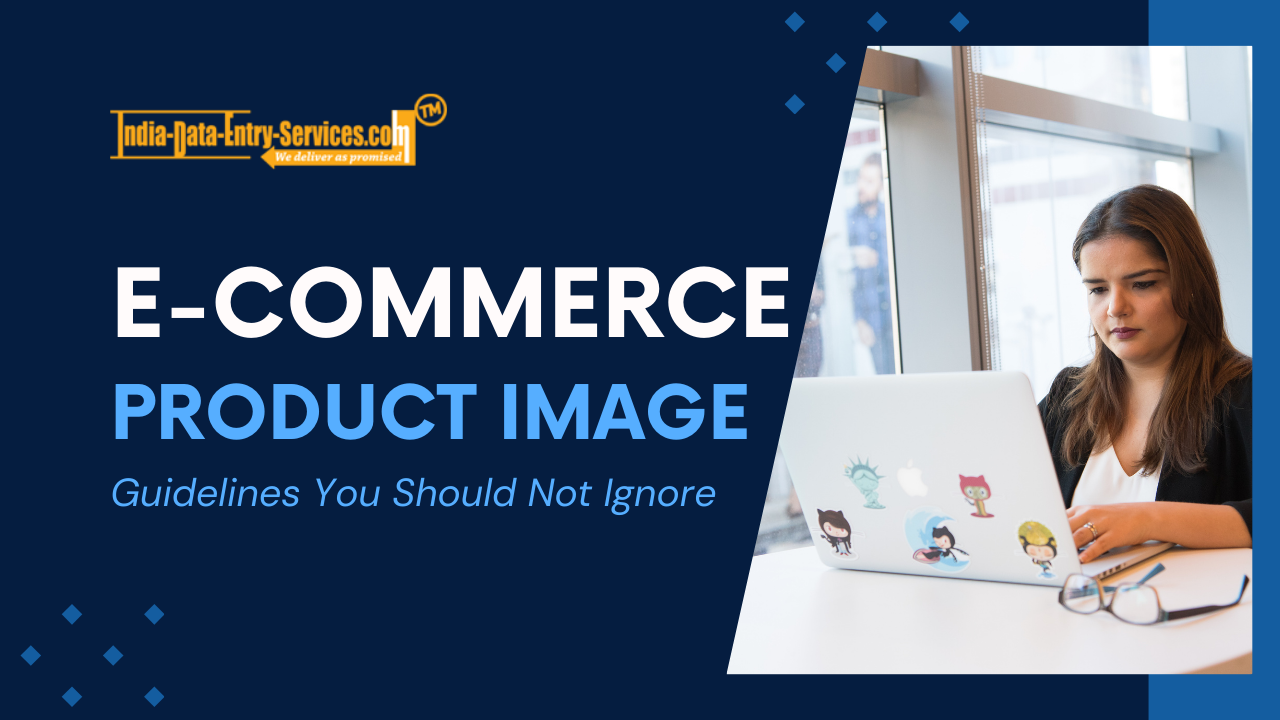Shopify is an excellent platform for entrepreneurs to set up their online stores and grow their businesses. One of the platform's key features is the ability to import products into the Shopify store from a variety of sources. However, as tempting as it may be to use the standard product import feature, doing so can lead to numerous problems that can harm your business in the long run. It is thus recommended to outsource Shopify bulk product upload services from a reputed company that has hands-on running Shopify business and its prerequisites.
Let's explore, why you should never go with the standard product import in Shopify and why many Shopify product listing services abide by the same rule.
1. Lack of Flexibility
The standard product import feature in Shopify lacks flexibility and thus, when you use utilize this type of import feature, you are limited to importing only the most basic product information, such as product names, prices, and descriptions.
If you desire to create a unique shopping experience for your customers and benefit your business in the long run, you need to provide them with more detailed and informative product descriptions, high-quality images, and other product attributes such as colour, size, and material.
On the other hand, the standard product import feature cannot import all this additional information, forcing you to manually enter it, which is both time-consuming and prone to errors. Therefore, Shopify Bulk product upload services experts avoid using this feature to propel the complete process and impart more information at a single time.
2. No Data Validation
There is another bad news about using the standard product import feature in Shopify - it does not provide any data validation. This means that the platform does not check the quality of the data you are importing. This incapacity can seriously harm your business in many ways, such as:
- Creating duplicate products
- missing data
- incorrect pricing
- incorrect inventory levels
- Hurting your website on SERPs
- Decreasing sales over time
The first few problems can create confusion among your customers and then can affect your store's search rankings, resulting in diminishing sales.
Moreover, if you have a large product catalog, it can be challenging to manually identify and correct these errors, leading to further delays and potential losses.
3. No Customization
Another woe added is that Shopify does not offer any customization options in its standard product import feature.
Every business is unique, and your store's product catalog ought to reflect that. However, when you use the standard product import feature, you are limited to the default product fields provided by the platform. This means that you cannot add custom product fields or import product data in a specific format that suits your business needs. As a result, you may need to compromise on the quality of your product data, leading to a suboptimal shopping experience for your customers.
And definitely, you wouldn't want that!
4. No Data Mapping
Shopify's standard data import feature doesn't let you map the data from your source file to the corresponding fields in your Shopify store. And this can be a problem if you are importing data from a different platform or source, as the data may not match the format used in Shopify. This can lead to incorrect data being imported, leading to further errors and confusion.
Verdict - Standard Product Import Feature in Shopify
Although it is quite tempting to use the standard product import feature in Shopify to import products into your store, it can lead to numerous issues that can harm your business in the long run. Therefore, it is highly recommended to outsource Shopify Bulk product upload services that can use a custom import script or proven methods that offer more flexibility, validation, customization, and data mapping options, ensuring that your product catalog is accurate, comprehensive, and tailored to your business needs, leading to a better shopping experience for your customers and increased sales for your business.





